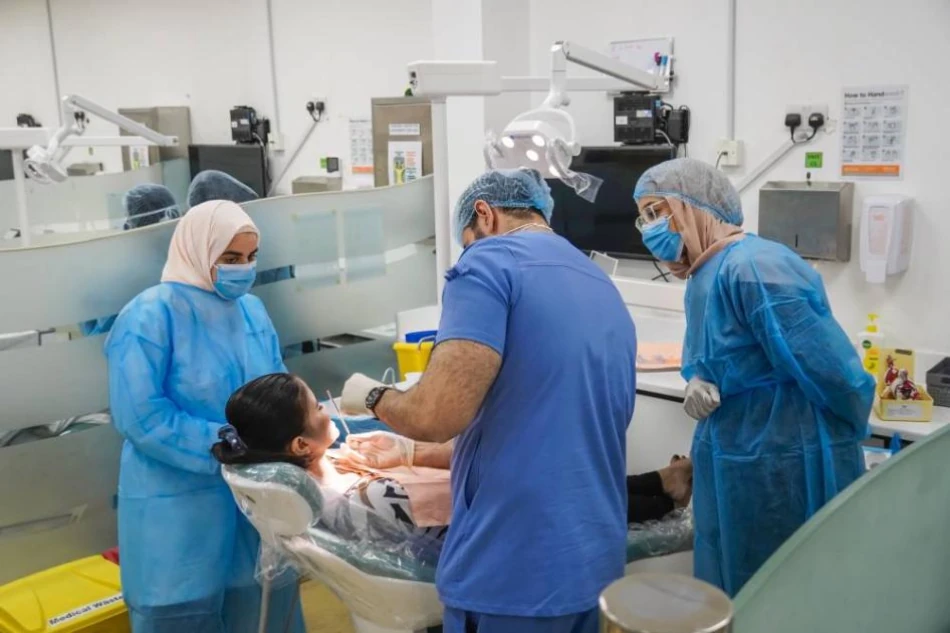
Unlock Your Academic Journey: Fujairah University Offers 19 Diverse Programs
University of Fujairah Positions Itself as Regional Tech Hub with AI-Focused Academic Expansion
The University of Fujairah is launching 19 specialized academic programs for the 2025-2026 academic year, with a strategic emphasis on artificial intelligence, cybersecurity, and renewable energy—positioning the emirate as a forward-thinking educational destination in the UAE's broader economic diversification push. The expansion reflects the Gulf region's accelerating shift toward knowledge-based economies and technological self-sufficiency.
Strategic Academic Portfolio Targets Future Industries
Dr. Sulaiman Al Jasim, President of the University of Fujairah, announced the completion of preparations for the new academic year, featuring 15 undergraduate and 4 master's programs across five colleges. The program selection reveals deliberate alignment with the UAE's National Strategy for Artificial Intelligence 2031 and Vision 2071, which aim to establish the country as a global AI leader.
The timing is particularly significant as regional universities compete to attract international students and position themselves as alternatives to Western institutions, especially as geopolitical tensions affect traditional study abroad patterns.
Technology and Engineering Take Center Stage
AI and Machine Learning Focus
The College of Engineering and Technology offers the most comprehensive technology curriculum, including computer science degrees specializing in artificial intelligence and machine learning, networks and information security, and data science. A master's program in AI applications signals the university's ambition to produce graduate-level expertise in emerging technologies.
This approach mirrors successful models in Singapore and South Korea, where universities partnered with government initiatives to create technology talent pipelines that later attracted major international tech companies.
Cybersecurity and Infrastructure
The inclusion of cybersecurity specializations across multiple programs reflects the UAE's recognition of digital security as a national priority. With the country hosting major financial centers and smart city initiatives, demand for cybersecurity professionals continues to outpace supply across the Gulf region.
Healthcare Education Expansion
The College of Dentistry and Health Sciences maintains a robust offering with dental surgery, pharmacy, and nursing programs, plus specialized training for dental assistants and medical residents. This healthcare focus addresses the UAE's growing medical tourism sector and aging population demographics.
The programs carry accreditation from the National Qualifications Centre and National Institute for Health Specialties, ensuring graduates can practice across the UAE's integrated healthcare system.
Business and Social Sciences Round Out Portfolio
Traditional disciplines receive modern updates through the College of Business Administration's entrepreneurship master's program and the College of Arts and Humanities' mass communication and psychology offerings. These programs acknowledge that even non-technical fields require digital literacy and innovation thinking in today's economy.
Regional Competition and Market Positioning
The University of Fujairah's expansion occurs as regional education hubs intensify competition for students and research partnerships. Dubai and Abu Dhabi already host international university branches, while Saudi Arabia's NEOM and Qatar's Education City offer alternative models.
Fujairah's advantage lies in lower operational costs and the emirate's strategic location for logistics and trade, potentially attracting students interested in business applications of their technical education.
Investment Implications and Economic Impact
Crown Prince Sheikh Mohammed bin Hamad Al Sharqi's backing signals long-term government commitment to education infrastructure investment. For the emirate, the university represents economic diversification beyond traditional ports and trade activities.
The focus on AI and renewable energy aligns with broader Gulf trends toward sustainable technology adoption, creating potential partnerships with the region's growing cleantech and fintech sectors. Graduates from these programs could support the UAE's ambitions in space technology, smart cities, and digital government services.
The success of this academic expansion will likely depend on the university's ability to attract quality faculty, establish industry partnerships, and demonstrate employment outcomes for graduates in an increasingly competitive regional education market.
Most Viewed News

 Omar Rahman
Omar Rahman






